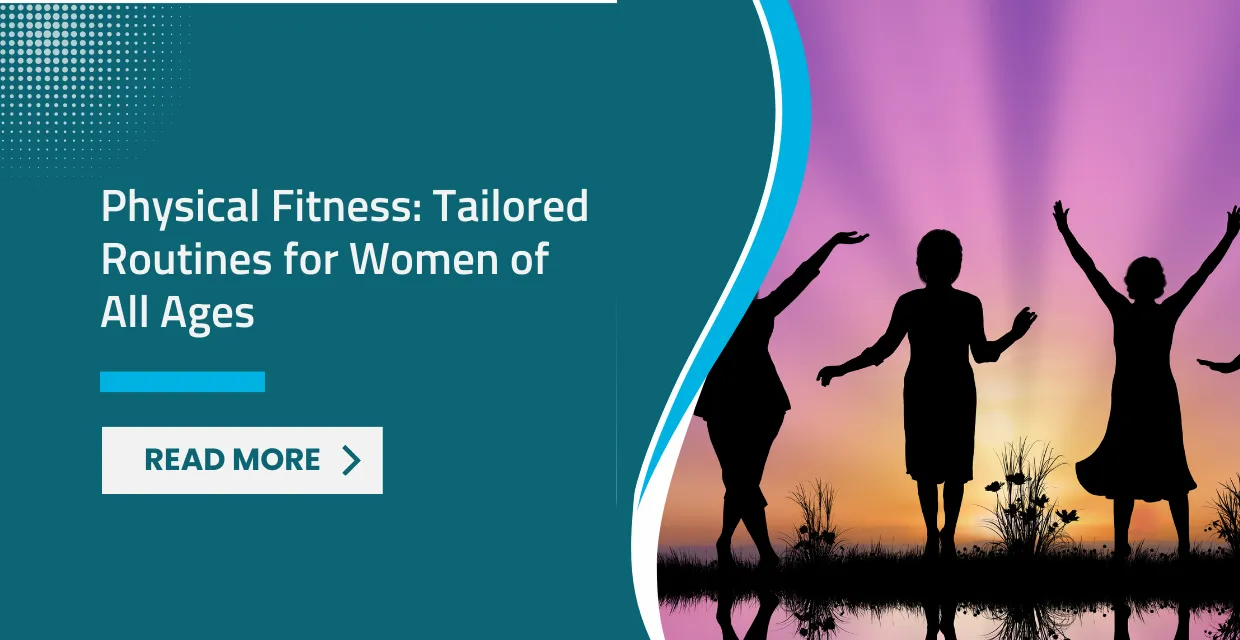Vitamins and Supplements: Do You Really Need Them?
In the quest for optimal health and well-being, vitamins, and supplements have become a significant part of many people’s daily routines. The global market for ...

Physical fitness is a cornerstone of good health and well-being, offering benefits that extend far beyond physical appearance. For women, engaging in regular physical activity is crucial at every stage of life, as it helps in managing stress, improving mood, maintaining a healthy weight, and reducing the risk of chronic diseases such as heart disease, diabetes, and osteoporosis. For instance, women looking for professional medical advice on fitness routines tailored to their health status might seek out the Best Hospital in Eldoret for personalized advice and safety guidelines. This ensures that their fitness plan is not only effective but also safe, taking into account any specific health concerns or requirements they might have.
For adolescent girls and young adult women, physical activity is essential for building strong bones, maintaining a healthy weight, and establishing lifelong fitness habits. This age group can generally engage in a wide variety of exercises, including:
Cardiovascular Activities: Running, cycling, swimming, and team sports like soccer or basketball help improve heart health and endurance.
Strength Training: Incorporating light weights or bodyweight exercises such as push-ups, squats, and lunges can help build muscle strength and support bone health.
Flexibility and Balance Exercises: Yoga and Pilates can enhance flexibility, balance, and core strength, which are essential for overall fitness.
Young women need to find physical activities they enjoy, which can help in maintain consistent exercise habits.
Women in their 20s and 30s often balance career demands, personal commitments, and for some, pregnancy and motherhood. Tailored fitness routines can help manage stress, maintain energy levels, and support maternal and fetal health during pregnancy.
Moderate-Intensity Cardio: Activities like brisk walking, dancing, and low-impact aerobics are beneficial for heart health and can be safely continued during most pregnancies, with medical clearance.
Strength Training: Maintaining muscle strength is important, especially for supporting the additional weight during pregnancy. Light resistance exercises, with modifications as needed, can be beneficial.
Prenatal Yoga and Pilates: These activities can help improve flexibility, reduce pregnancy-related discomfort, and prepare the body for childbirth.
Postpartum women should gradually resume physical activities, focusing on strengthening the pelvic floor and core muscles affected by pregnancy and childbirth.
As women enter their 40s and 50s, metabolic rates slow down, and the risk of chronic diseases increases. Menopause also brings about hormonal changes that can affect weight, bone density, and muscle mass. Tailoring fitness routines to address these changes is key.
Cardiovascular Activities: Engaging in regular moderate to vigorous cardiovascular exercises like jogging, swimming, or high-intensity interval training (HIIT) can help manage weight and improve cardiovascular health.
Strength Training: Regular strength training is essential for maintaining muscle mass, supporting metabolism, and improving bone density, which is crucial for preventing osteoporosis.
Flexibility and Balance Work: Incorporating yoga or Tai Chi can help maintain flexibility, reduce the risk of falls, and provide mental relaxation.
For women over 60, maintaining physical fitness is crucial for preserving independence, preventing falls, and managing chronic health conditions. Exercise routines should focus on gentle, low-impact activities that are safe and enjoyable.
Low-Impact Cardio: Walking, water aerobics, and stationary cycling are excellent options for maintaining cardiovascular health without putting too much strain on the joints.
Strength and Resistance Training: Light to moderate resistance exercises using bands, light weights, or body weight can help preserve muscle strength and bone density.
Balance and Flexibility Exercises: Activities like yoga, Pilates, and balance-focused exercises are important for preventing falls and improving mobility.
When tailoring fitness routines, it's essential to consider not only age but also individual health status, fitness level, and personal preferences. Here are some additional tips for personalizing routines:
Consult Healthcare Providers: Before starting any new fitness routine, especially for those with existing health conditions, it's crucial to consult healthcare providers for personalized advice and safety guidelines.
Incorporate Variety: Mixing different types of exercises can keep routines enjoyable and address multiple aspects of physical fitness.
Listen to Your Body: Paying attention to how the body responds to different activities is crucial. Adjusting intensity and duration based on individual capabilities and responses can help avoid injury and fatigue.
Set Realistic Goals: Setting achievable fitness goals can provide motivation and a sense of accomplishment, encouraging consistency and long-term commitment to physical activity.
Physical fitness is a lifelong journey that evolves with a woman's changing needs and life stages. By tailoring fitness routines to these specific requirements, women can optimize their health benefits, maintain motivation, and enjoy a higher quality of life. Whether it's building bone density in adolescence, supporting maternal health during the childbearing years, managing weight and stress in midlife, or preserving mobility and independence in senior years.
Partager cet article